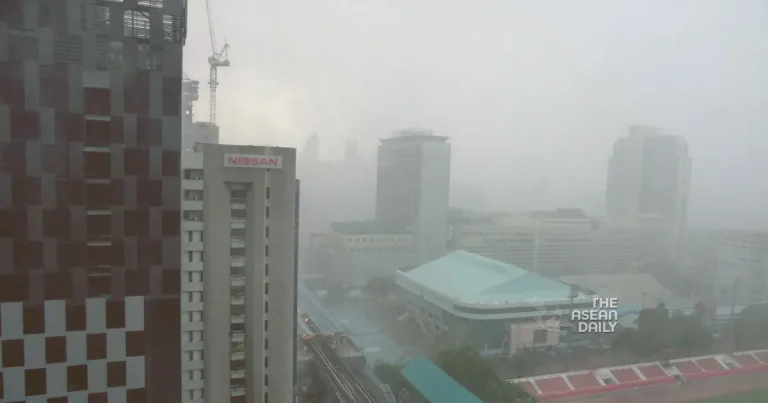20-10-2023 (BANGKOK) Thai authorities have pledged to take action in response to a surge in air pollution that occurred earlier than the usual peak of seasonal haze. However, environmental activists have accused the government of failing to address the root causes of the issue.
On Friday, Bangkok was ranked as the 10th most polluted city in the world by air quality monitoring firm IQAir. Government officials attributed the sudden spike in pollution to atmospheric conditions, citing colder air, high air pressure, and dry weather as factors leading to the accumulation of fine particulate matter known as PM2.5. These particles are so small that they can enter the bloodstream, posing health risks, particularly for vulnerable groups.
Highlighting the importance of air quality and safety, the government issued a statement emphasizing its commitment to tackling the issue. Officials outlined plans to intensify PM2.5 prevention methods, including restrictions on crop burning, the establishment of regulations between the public and private sectors, increased monitoring, and negotiations with relevant sectors to address transnational pollution.
However, environmental groups criticized the government for overlooking a significant contributor to the problem: the industrial sector. Alliya Moun-ob, an air pollution campaigner for Greenpeace Thailand, argued that research papers have shown industrial activity to be a major source of PM2.5, but there is limited data available on the subject. The government claims that the industrial sector accounts for only 4% of the haze during the cooler winter months when the burning season occurs, attributing the majority of the pollution to factors such as seasonal burning by farmers, including in neighboring countries.
The recent surge in pollution, even before the peak of the burning season, suggests that the industrial sector’s impact is likely much higher than stated by the government, according to Panchom Saetang, the director of Ecological Alert and Recovery-Thailand. Saetang, who has studied air quality issues for over a decade, believes that industry contributes closer to one-third of the particulate matter causing haze in the capital.
Environmentalists are calling for the introduction of a law that would require factories to disclose their emissions data. Currently, there is a lack of accessible data, making it difficult to determine the true causes of the pollution. The government’s focus on farmers’ activities while neglecting the industrial sector has drawn criticism from activists.
The recent early-season spike in pollution serves as a wake-up call for the need to transparently address the root causes of the issue, according to Alliya. She emphasized the importance of identifying and tackling the underlying problems contributing to PM2.5 pollution.
Thai cities, including Chiang Mai in the north, have consistently ranked high for poor air quality this year. The country’s health ministry reported that over two million people sought medical treatment this year due to health problems linked to poor air quality.




